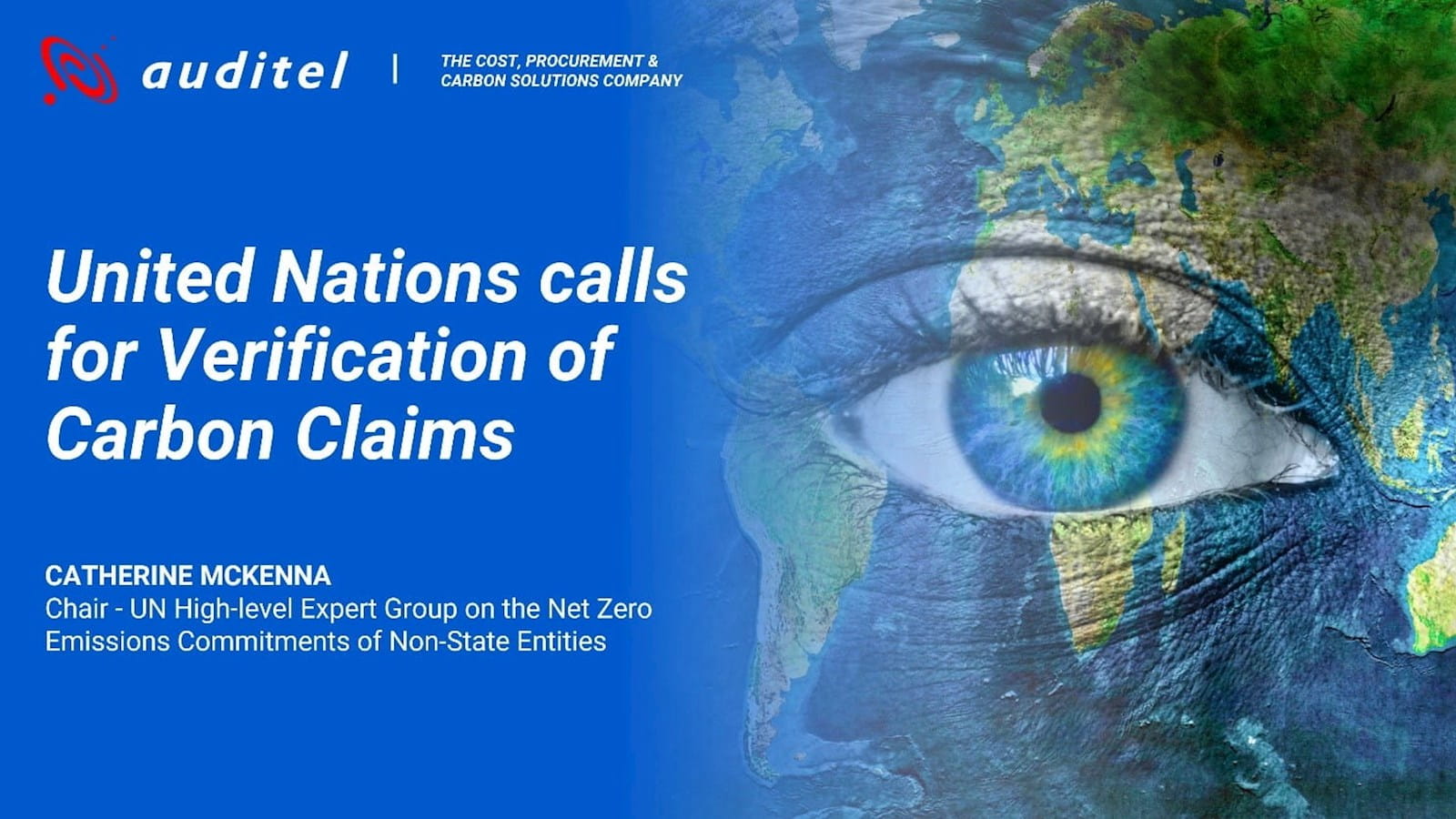“We urgently need every business, investor, city, state and region to walk the talk on their net zero promises. We cannot afford slow movers, fake movers or any form of greenwashing.” António Guterres, UN Secretary General.
As I mentioned in my last article, the whole issue of greenwashing has been gaining significant traction. At COP 27 in November, Catherine Mckenna launched the UN report on the net zero claims and commitments of non-state entities i.e., businesses like yours. This follows the above statement made by the UN Secretary General.
The report says, “to prevent dishonest climate accounting and other actions designed to circumvent the need for deep decarbonisation, we emphasize that non-state actors [businesses] must report publicly on their progress with verified information that can be compared with peers.”
It goes further to say that one of its five guiding principles is that all businesses should establish credibility through plans based in science and third-party accountability. It is time for governments and consumers to start holding business accountable for the emission claims they make. Many in the sector are predicting increased scrutiny of emissions claims with UK bodies such as the Advertising Standards Agency and CMA making statements of their intention to act on false or misleading claims. This, with the speculation of further possible legislation on reporting standards means the time of ill considered, unverified and lazy carbon reporting should be coming to an end.
The report contains 10 recommendations that every business can follow:
- Announcing a Net Zero Pledge
- Setting Net Zero Targets
- Using Voluntary Credits
- Creating a Transition Plan
- Phasing out of Fossil Fuels and Scaling Up Renewable Energy
- Aligning Lobbying and Advocacy
- People and Nature in the Just Transition
- Increasing Transparency and Accountability
- Investing in Just Transitions
- Accelerating the Road to Regulation
Those who are interested enough and want to make a real difference can read the whole report.
In line with my own values and belief is the need to ensure any environmental claims which are made are substantiated. I firmly believe that ANY claims made regarding GHG emissions (carbon footprint) need to comply with the strictest of standards. With an increasing demand from consumers, investors, media, staff, and the public for accurate and meaningful measurement of an organisations’ carbon footprint, it has never been more important to ensure clients can trust in the work I undertake.
The world is changing, and the glut of natural disasters that have already occurred this year, from floods in Pakistan, to hurricanes in Florida, may mean we are already too late to slow down this force of change. However, the belief is that there is still time.
It is very easy for all businesses, particularly SMEs, to continue to kick this can down the road adopting the view that the difference I can make is negligible so why bother. I am not sure I want to live in a world where that is the overriding methodology and I don’t believe we live in such a world.
However, the time for talking is reaching an end, the time for action is now. It is very easy to wait for legislation to force action but legislation tends to follow popular opinion rather than lead it.
To help take your initial steps please contact me directly at icaew@auditel.co.uk or visit the Auditel website to take advantage of our free carbon consultation for ICAEW members.
Why Do Companies Engage in Greenwashing?
There are a number of reasons why companies engage in greenwashing. First, it can be an effective marketing tool, helping to attract environmentally conscious consumers. Second, greenwashing can help to improve a company’s public image and reputation. And finally, it can help to build consumer trust and loyalty. All of the above points lead to a company or organisation incasing its revenue and profitability.
Companies engage in greenwashing when they do not have the expertise to know what is truly environmentally beneficial, but it’s more often due to ignorance of environmental issues. For example, Australia has a consumer protection agency that fined one company for selling “biodegradable” plastic bags which technically didn’t fully degrade unless processed with specially designed equipment – instead these items broke down into smaller parts over time.
How to Avoid Greenwashing?
To avoid greenwashing, companies should be transparent about their environmental practices and make sure that their claims are supported by scientific evidence. When in doubt, consumers can consult independent third-party organizations to verify a company’s green claims. By being aware of greenwashing, companies and consumers can help to create a more sustainable marketplace. Other ways consumers can spot greenwashing are:
- Avoid ‘fluffy language’ that has no clear meaning, such as ‘eco-friendly’ and ‘produced sustainably’
- Dangerous products making the product seem safe, such as eco-friendly cigarettes
- Using jargon that only a scientist could understand
- Providing no proof of the carbon claim
- Presenting fabricated claims and data as facts
The world has moved on and examples of greenwashing are being called out more and more. To ensure your “green” claims do not fall foul of greenwashing accusations please contact me directly at icaew@auditel.co.uk or visit auditel.co.uk/icaew and take advantage of our free carbon consultation for ICAEW members.
*The views expressed are the author's and not ICAEW's.
